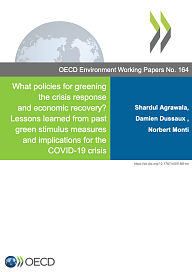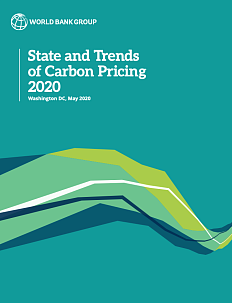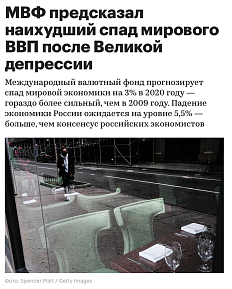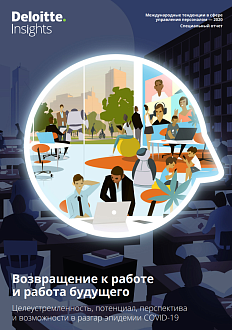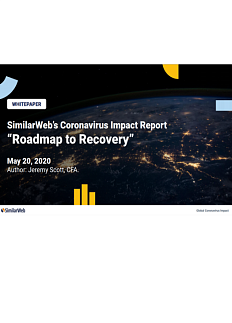This paper by the Organization for Economic Cooperation and Development (OECD) evaluates green stimulus packages that were introduced in response to the Global Financial Crisis (GFC) of 2007-2008 and draws lessons relevant for greening the recovery from the COVID-19 crisis.
The Roscongress Foundation presents the salient points of the publication accompanied by fragments of broadcasts of relevant panel discussions from the business programme of international events held by the Roscongress Foundation.
Green initiatives have been recognized as essential components of stimulus and recovery packages implemented in the wake of past crises, including the Global Financial Crisis of 2007-2008 (GFC).
As the world confronts the COVID-19 pandemic, caused by a novel coronavirus, governments are acting decisively to contain the public health crisis and its immediate social and economic fallout. The containment measures to address the public health crisis are having very significant economic impacts.
Concomitant with the announcement of policy measures to respond to COVID-19 there are also growing calls to ensure that such measures integrate responses to address a number of pressing environmental challenges as part of the eventual economic stimulus packages. In their 15th of April 2020 Communiqué, the G20 Finance Ministers and Central Bank Governors also «commit to an environmentally sustainable and inclusive recovery ... guided by a sense of shared, long-term responsibility for our planet and citizens, consistent with the 2030 Agenda for Sustainable Development».
Green elements featured quite prominently in a number of stimulus and recovery packages that were implemented in the wake of the Global Financial Crisis 2007-2008 (GFC), including in Korea, the United States, Japan, China, the EU and its Member States.
Green projects tend to be more effective in the medium to long term—a fact that cannot be ignored when planning recovery packages.
Although the necessity for urgent anti-crisis measures is beyond doubt, there remains the need to balance the focus between the short-term and medium- to long-term policy measures and to ensure their effectiveness. While unemployment insurance, as well as food vouchers, along with transfers can be highly effective in the short run to boost demand, infrastructure and technological investments may not be as effective over a similarly short time period. Such investments often require additional planning and implementation, and therefore are seen as better for tackling recovery in the medium and long run.
Potential economic impacts, cost-effectiveness of green initiatives, and specificities of the current crisis all need to be considered when planning green stimulus packages.
In the wake of the GFC, the primary focus was on reducing resource consumption and optimizing processes. Consequently, green initiatives and projects at that time prioritized renewable energy, energy efficiency, fuel-efficient vehicles, etc.
For example, in the United States, the 2009 American Recovery and Reinvestment Act (ARRA) stipulating investments in the deployment of clean energy technologies helped increase solar electricity generation over 30 times from 2008 levels by 2015. ARRA also contributed to the creation of 26,600 jobs in the first years of its implementation and led to an annual reduction of 8.6 megatonnes (Mt) of CO2 emissions.
Still, while the lessons from the GFC remain relevant, the specific proposals to green the COVID-19 response cannot simply be a «cut and paste» from the GFC playbook. This is because there are a number of fundamental differences between the current crisis and its predecessors. The current crisis has been accompanied by a significant loss of human life, which continues to climb; a tremendous strain on public health and social infrastructure; and the significantly higher economic and social consequences that continue to unfold.
For more information about possible ways to stabilize the economy during a pandemic, please see the StayHomeEconomy special section of the Roscongress information and analytical system, and the Environment, Basic Research, Green Technologies, and Climate Change sections about environmental safety as a strategic goal for ensuring economic and social welfare.


